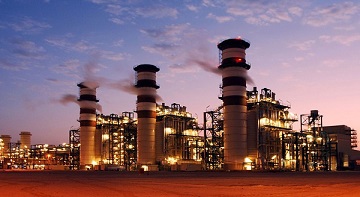GA-EMS electrostatic separators selected for Oman refinery

General Atomics Electromagnetic Systems (GA-EMS) has received an order for a 180-module Gulftronic electrostatic separator for installation at the Oman Oil Refineries and Petroleum Industries Co. SAOC (Orpic) Sohar refinery in the Sultanate of Oman. The Gulftronic system will replace an existing mechanical filtration system installed in 2008 at Orpic’s Sohar refinery to meet the plant’s operational demand.
Modern refineries rely on residual fluidized catalytic crackers (RFCC) to convert heavy crude oil into gas products. The conversion process creates slurry oil/decant oil, a by-product containing catalyst fines. Through a unique electrostatic process, Gulftronic separators capture and remove all solids from the process stream, resulting in higher value clarified oil products, less downstream contamination and significantly reducedmaintenance requirements.
“Mechanical filtration systems allow fine particles to escape capture, causing blockages, buildup in the filters and a higher incidence of contamination, all of which result in increased downtime and elevated maintenancecosts,” stated Dr. Vivek Lall, vice president, Global Commercial Strategic Development at GA-EMS. “Gulftronic electrostatic separators provide clarity below 100 ppm and are impervious to fouling, which helps refineries improve yields and profit margins.”
Kamil Al Shanfari, general manager, Sohar refinery, Orpic, said, “Orpic is one of the largest and most rapidly growing business in the Middle East oil industry. Our strategic growth projects – Sohar Refinery ImprovementProject (SRIP), Muscat Sohar Product Pipeline (MSPP) and Liwa Plastics Industries Complex (LPIC) – are in line with our plan to add value to the oil and gas molecules produced in Oman. The focus is on a higher standard of efficiency, lower costs, minimizing safety and security hazards, and reducing environmental impacts.”






Comments